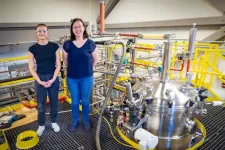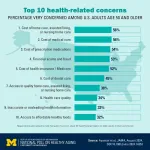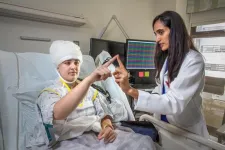(Press-News.org) In the wake of the $51 million funding announcement from the Economic Development Administration, momentum is tangible for the Illinois Fermentation and Agriculture Biomanufacturing (iFAB) Tech Hub. Today marks the beginning of a new collaboration to replace fossil fuel-derived petrochemicals with zero-emission alternatives produced through precision fermentation.
Industrial Microbes (iMicrobes) is partnering with the iFAB Tech Hub’s Integrated Bioprocessing Research Laboratory at the University of Illinois Urbana-Champaign to harness microbes to produce acrylic acid, a versatile chemical compound that is fundamental in the production of a wide range of products across various industries. They are beginning their first pilot-scale test run at IBRL to demonstrate proof of concept.
The global acrylic acid market is expected to hit almost $15 billion by 2030. Companies like iMicrobes, looking to secure some of this market share, can scale their biomanufacturing technologies right here in Central Illinois, said Beth Conerty, who leads the iFAB consortium and IBRL business development within the College of Agricultural, Consumer and Environmental Sciences.
“With the support of the landmark EDA grant, iFAB is building a robust biomanufacturing ecosystem across Central Illinois that empowers companies to bring their bioinnovations from the laboratory to full-scale production,” Conerty said. “Our goal is to make Central Illinois the go-to destination for enterprises turning scientific advancements into real-world, eco-friendly solutions that redefine industrial chemistry.”
iMicrobes President Derek Greenfield said they aim to replace the manufacturing industry’s ubiquitous petroleum-derived chemicals with a bio-based, net-zero acrylic acid for the burgeoning bioeconomy. Acrylic acid produces things like greener diapers and period products, durable bioplastics, fabrics, water treatment chemicals, adhesives, sealants, paints — and much more.
"Through the power of synthetic biology, we've programmed microorganisms to harness a variety of renewable feedstocks, moving away from petroleum-based processes,” Greenfield said. “The result is a molecular product that mirrors its conventional counterpart, yet offers the groundbreaking benefit of net-zero or even negative emissions."
Other groups are partnering with the IBRL to leverage precision fermentation in the production of other universal industrial chemicals: the Center for Advanced Bioenergy and Bioproducts Innovation is generating a precursor to acrylic acid (3HP); BioMADE has funded a project to produce succinic acid, which is used in biodegradable plastics, synthesizing pharmaceuticals, enhancing flavors in food and beverages, maintaining the quality of cosmetics, and more.
"As we look to the future, iFAB is not just fostering innovation; we are actively inviting businesses and entrepreneurs to join us in Central Illinois, the emerging epicenter of sustainable biomanufacturing,” Conerty said. “Our facilities, resources, and expertise are geared towards transforming bold ideas into market-ready solutions that lead the way in environmental stewardship and economic growth. Together, we can redefine the landscape of industrial manufacturing, making it greener, more efficient, and infinitely more sustainable."
To learn more about kickstarting your precision fermentation project, contact Conerty at bconerty@illinois.edu.
About iFAB
The Illinois Fermentation and Agriculture Biomanufacturing (iFAB) Tech Hub is poised to become the global leader in precision fermentation and biomanufacturing — an industry expected to grow to $200 billion over the next 15 years. Leveraging biology as a manufacturing technology of the future, iFAB is uniquely uniting world-class R&D, industry leaders, innovative startups, scalable infrastructure, abundant feedstock production, unparalleled transportation networks, and strong relationships with corn and soybean suppliers within a 51-mile radius. This unique lab-to-line approach establishes the iFAB region (Champaign, Piatt, and Macon counties) as the preeminent destination for the biomanufacturing industry.
END
iFAB Tech Hub grows net-zero industrial chemical partnerships, champions bioeconomy
2024-08-14
ELSE PRESS RELEASES FROM THIS DATE:
Fracking frenzy in India: A water crisis in the making?
2024-08-14
India's plans to scale up fracking operations without robust regulations could spell disaster for the country's finely balanced water security, according to research from the University of Surrey.
India is positioning shale gas as a key transitional energy source and has announced 56 fracking projects across six states. Despite the promise of energy independence, Surrey’s study raises alarm bells about the country's preparedness to handle the unique water risks posed by fracking.
Hydraulic fracturing, or fracking, involves injecting high-pressure fluid into shale ...
New research identifies early sensorimotor markers for autism spectrum disorder
2024-08-14
New York, August 14 2024 – A study published in the journal iSCIENCE has uncovered significant findings related to the early sensorimotor features and cognitive abilities of toddlers who are later diagnosed with Autism Spectrum Disorder (ASD). The research, led by Kristina Denisova, a professor of Psychology and Neuroscience at the CUNY Graduate Center and Queens College, takes an important step toward better understanding ASD so that more precise, individually tailored interventions can be developed.
Autism Spectrum Disorder, typically diagnosed around the ages of 4 to ...
Mutation detection of phosphatidylinositol-4,5-bisphosphate 3-kinase catalytic subunit alpha for treatment guidance in breast cancer
2024-08-14
Breast cancer remains a significant health concern worldwide, with diverse molecular subtypes that necessitate personalized therapeutic approaches. Recent advances have highlighted the importance of molecular signatures in guiding breast cancer treatment. Among these, the phosphatidylinositol-4,5-bisphosphate 3-kinase catalytic subunit alpha (PIK3CA) gene mutation has emerged as a crucial factor in determining the efficacy of targeted therapies, particularly in advanced breast cancer. This review explores the role of PIK3CA mutation detection in breast cancer and its implications for personalized treatment strategies.
Breast Cancer Heterogeneity
Breast ...
State COVID-19 vaccine mandates and uptake among health care workers in the US
2024-08-14
About The Study: This repeated cross-sectional study found that state COVID-19 vaccine mandates for health care workers (HCWs) were associated with increased vaccine uptake among HCWs, especially among younger HCWs and those in states with no test-out option. These findings suggest the potential for vaccine mandates to further promote vaccinations in an already highly vaccinated HCW population, especially when no test-out option is in place.
Corresponding Author: To contact the corresponding author, Charles Stoecker, ...
Depressive symptoms in adolescence and young adulthood
2024-08-14
About The Study: This panel cohort study found that increases in depressive symptoms in adolescence persisted into young adulthood, suggesting the need for primary prevention and mental health resources during the adolescent years.
Corresponding Author: To contact the corresponding author, Katherine M. Keyes, PhD, email kmk2104@columbia.edu.
To access the embargoed study: Visit our For The Media website at this link https://media.jamanetwork.com/
(doi:10.1001/jamanetworkopen.2024.27748)
Editor’s Note: Please see the ...
Leading health-related concerns of older adults before the 2024 election
2024-08-14
About The Study: In this nationally representative survey regarding 26 prominent health-related issues, older adults reported being most concerned about costs of health care and health insurance for older adults in their community, as well as financial scams and fraud. More than half of older adults in nearly all demographic groups reported being very concerned about the costs of medical care and prescription drugs, with significant differences by gender and political ideology. Women reported being more concerned than men, and liberal and moderate individuals more concerned than conservative ...
As election approaches, national poll shows which health topics concern older adults most
2024-08-14
More than half of the people who voted in the 2020 election were age 50 and older, making this age group a key demographic for candidates up and down the ballot.
Now, a new study shows what issues top their lists of health-related concerns going into this November’s election.
Five of the top six issues that the highest percentage of older adults reported being very concerned about have to do with the cost of different kinds of health care, from medical care and prescription drugs to long-term care, health insurance ...
Patterns of intelligence
2024-08-14
The coordinated activity of brain cells, like birds flying in formation, helps us behave intelligently in new situations, according to a study led by Cedars-Sinai investigators. The work, published in the peer-reviewed journal Nature, is the first to illuminate the neurological processes known as abstraction and inference in the human brain.
“Abstraction allows us to ignore irrelevant details and focus on the information we need in order to act, and inference is the use of knowledge to make educated guesses about the world around us,” said Ueli Rutishauser, PhD, professor and Board of Governors Chair in Neurosciences at Cedars-Sinai and co-corresponding author of the ...
Immune cell regulator discovery could lead to treatments for arthritis and severe COVID
2024-08-14
Immune cell regulator discovery could lead to treatments for arthritis and severe COVID
The discovery of a new regulator affecting immune cells could lead to new treatments to reduce inflammation in diseases including arthritis and severe COVID 19.
A large research collaboration, led by the University of Exeter’s MRC Centre for Medical Mycology, has focused on how immune cells sense their environment. This activity triggers responses which are finely balanced, to protect against disease and infection, and to reduce cell-damaging inflammation.
The ...
Brigham researchers develop an implantable device to detect and respond to opioid overdose
2024-08-14
In preclinical models, the subcutaneously implanted device continuously monitored vital signs and delivered naloxone automatically and rapidly when it detected opioid overdose
The opioid epidemic continues to have devastating effects in the United States, exacerbated by the increasing presence of fentanyl in illicit opioids. Naloxone is an effective antidote, but it usually requires rapid administration from a bystander. Now, researchers from Brigham and Women’s Hospital, a founding member of the Mass General Brigham healthcare ...


